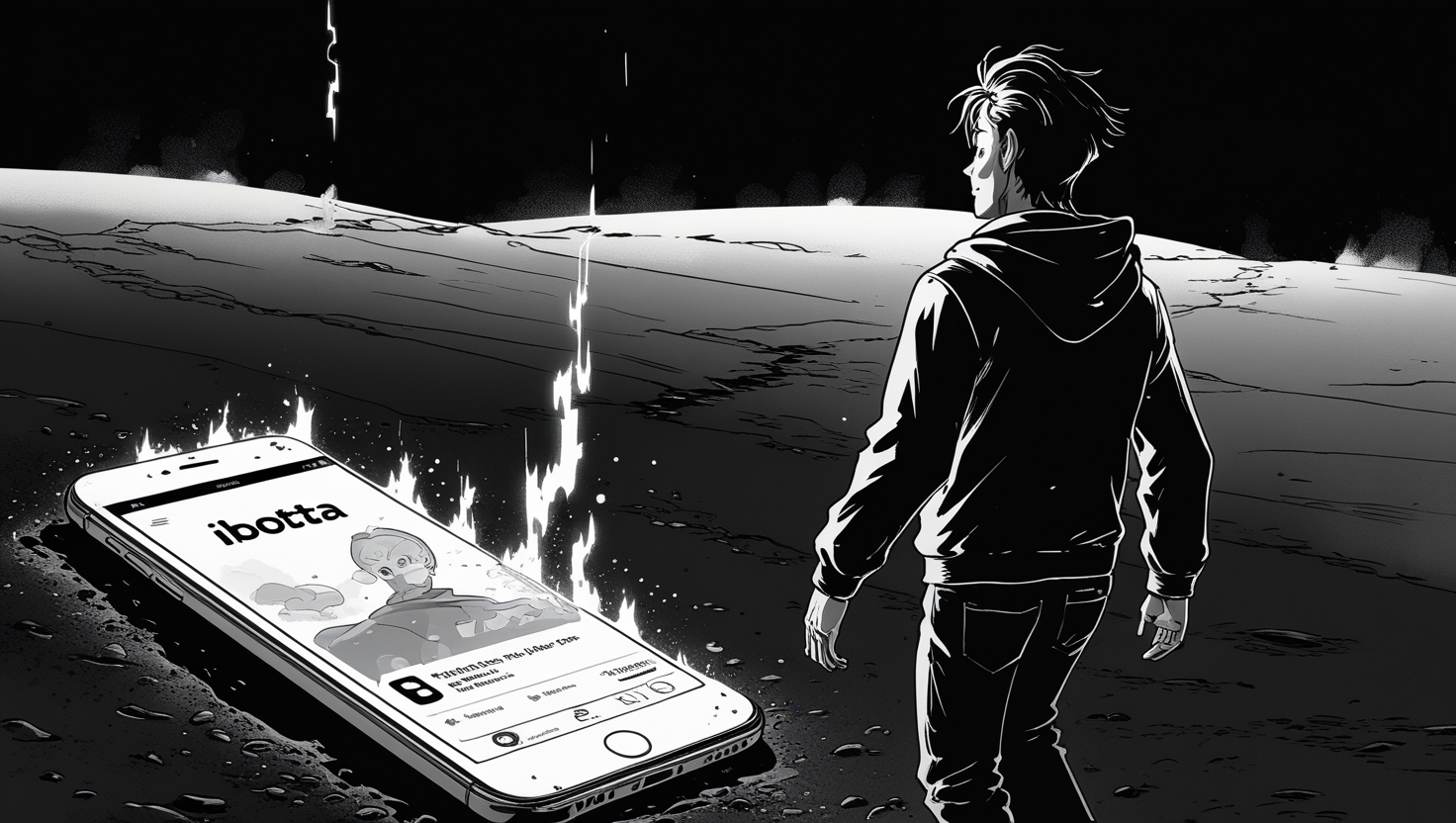If you’re a teenager or a young adult looking for ways to save money, you might have come across Ibotta – an app that offers cashback rewards on everyday purchases. At first glance, this platform appears to be a great financial booster, but beneath its appealing facade lie some real concerns. In this article, we will uncover the hidden dangers of Ibotta and explore issues such as privacy concerns, potential data sharing, consumer behavioral risks, and withdrawal limitations. Our goal is to help you make an informed decision about using Ibotta by presenting well-rounded insights, personal experience, and proven research from reputable sources like FTC Consumer Information.

Understanding the Allure and the Hidden Perils
The world of cashback applications seems modern and resourceful, offering money back on your shopping expenses. However, when it comes to Ibotta, there are several hidden risks that users often do not take into account. Could the allure of saving money and receiving rewards obscure underlying dangers such as data privacy issues and unexpected behavioral changes? Absolutely. Many users, particularly tech-savvy teenagers and young adults, may not be aware of just how much personal information is being tracked or how targeted marketing can manipulate purchasing habits. Have you ever wondered if there might be more at stake than just the small cashback? Let’s dive into the details.
Ibotta Privacy Issues: What You Need to Know
One of the biggest problems with using cashback apps is the threat to your personal data. Ibotta, like most online services, collects information in order to better serve you. While this might at first glance appear harmless, there are occasions when sensitive information about your shopping habit gets recorded. You ask yourself: When an app tracks every purchase, does that not create a risk for future privacy breaches? The answer is yes. Ibotta’s privacy issues, however, do not end at data storage but extend to usage of this data. In-house practices can include your information access for marketing, which in turn can influence what you see and even how frequently you shop.
For example, picture this: Your shopping patterns are used to create a detailed consumer profile. While this can serve to make the app more effective at offering up targeted promotions, it could also result in your being exposed to over-targeted offers that coerce you into making unnecessary purchases. So what started out as a way of saving money is, in effect, a driver for a consumption pattern that is the exact opposite of your budgeting goals.
Does Ibotta Sell Data? The Controversial Question
A critical question many users have is: Does Ibotta sell data? Although the app maintains that your data is primarily used to improve service and provide customized deals, there are concerns about whether third-party advertisers have indirect access to your information. Reports and user feedback have raised questions regarding potential data selling or sharing practices that could compromise your privacy. The answer isn’t always black and white. Ibotta’s terms of service may allow the sharing of aggregated and anonymized data with partners, but even this level of data exchange raises questions about security and potential misuse.
Teenagers and young consumers need to be particularly cautious. After all, the digital footprints created by using such platforms could have long-term implications if mishandled. In a world where data breaches are increasingly common, verifying the extent to which your data is protected is crucial. While Ibotta’s statements are reassuring at first glance, a deeper analysis might reveal that even aggregated data could be vulnerable when cross-referenced with other datasets.
Ibotta Risks: Financial and Behavioral Impacts
Other than privacy issues, Ibotta presents several risks that not only impact your financial health, but your behavior as well. One of the primary issues is encouraging impulsive and unnecessary spending. Have you ever found yourself tempted by a “limited time offer” text on your phone? With Ibotta’s focused advertising and consistently changing offers, there is the temptation to be lured into buying products for no other reason than that they provide a cashback incentive. In the real world, this would disrupt your budget, leading you to spend on products you don’t really need.
Additionally, the convenience and temptation of earning cashback might divert you from good saving habits to consumption behaviors. This psychological impact cannot be reduced. The instant reward mechanism of the app can cause you over time to expect reward for every purchase, which will distort your consumer value perception. In the majority of cases, the amounts of money saved will not be sufficient to balance out the additional spending encouraged by the rewards program. Consider for a moment: are you using Ibotta to enhance your saving strategy, or is it driving you into a pattern of fiscal irresponsibility?
Ibotta Problems: Withdrawal Limits and Other Concerns
Another significant issue with Ibotta is the limitation on how cash rewards are withdrawn. Users have reported that despite accumulating a notable amount in cashback, the app might impose a minimum threshold – often around $20 – before allowing any withdrawal. This can serve as a deterrent for young users who expect immediate usability of their rewards. Moreover, such withdrawal limitations might also lead to frustrations if there are delays or additional hoops to jump through for obtaining the cash rewards.
These constraints contribute to a broader narrative about the risks of using such apps. It’s not just about data; it’s also about ensuring a balance between enjoying rewards and maintaining financial discipline. Many users have observed that while the promise of cashback is enticing, the conditions attached could potentially nullify the actual benefit if not managed correctly.
Real Life Experience: Navigating the Ibotta Dilemma
Speaking from personal experience and observations from various peers, Ibotta presents both opportunities and challenges. On one hand, there’s undeniable excitement in earning instant rewards for regular purchases. On the other, users often share frustration about unexpected privacy safeguards, data usage policies, and the psychological impulse to overspend. I remember when I first started using the app, I was enamored by the idea of getting money back on daily purchases. But after a while, I noticed how frequently my attention was hijacked by constant notifications promoting deals that I didn’t really need.
This blend of excitement and caution is common. Even within forums and discussions, you might frequently encounter debates about the potential pitfalls of using Ibotta. Are the cashback incentives worth the risk of compromising your personal data and skewing your spending behavior? The answer likely depends on how critically you evaluate the balance between rewards and risks. For those considering this platform, it might be wise to explore some of the alternatives or at least remain aware of the hidden dangers of Ibotta.
Comparative Analysis: A Closer Look at Risks
To clarify the different issues associated with Ibotta, let’s take a look at the table below which summarizes the main concerns, their potential impacts, and suggested practices to manage these challenges:
| Aspect | Potential Risks | Suggested Practices |
|---|---|---|
| Privacy | Collection and sharing of personal data; targeted advertisements based on purchase history | Review privacy policies; adjust app settings; limit personal data sharing |
| Data Sales Concerns | Possibility of aggregated data being sold or mishandled by third parties | Stay informed about user reviews and updates; periodically reassess consent options |
| Behavioral Impacts | Encouragement of impulse buying; potential overspending under the guise of cashback rewards | Create and adhere to a strict budget; remain mindful of marketing tactics |
| Withdrawal Constraints | Minimum withdrawal limits; delays in receiving cashback rewards | Plan spending; monitor the account regularly; seek alternatives if conditions become too restrictive |
Striking a Balance: How to Use Ibotta Safely
Given the multifaceted issues discussed above, what steps can you take to use Ibotta responsibly? First and foremost, it is critical to set clear personal and financial limits. Before engaging with the app, ask yourself: Are you ready to share certain details about your shopping habits? Moreover, consider the potential long-term implications regarding privacy and overspending. It is imperative to read through the user agreements and privacy policies carefully. If you decide to dive in, you can adopt a cautious approach by limiting your profile details and monitoring your spending behavior closely.
It might also be helpful to use Ibotta in conjunction with more traditional budgeting methods. For example, allocate a fixed shopping budget and treat cashback rewards as a bonus rather than a primary income source. As you navigate through the app, you could even experiment with setting specific boundaries for usage, such as only using the app for essential purchases rather than for impulsive buying. Ultimately, the challenge lies in balancing the benefits of immediate rewards with the long-term goal of financial stability.
Additional Resources: Learning More About Ibotta
For those interested in understanding more about the pros and cons of using cashback apps, consider reading our comprehensive article on the ibotta app. This piece provides further analysis on how to maximize long-term savings while minimizing potential risks associated with the data privacy and behavioral aspects of such platforms.

Wrapping It Up: Should You Risk It?
In conclusion, while Ibotta clearly offers an attractive gateway to saving money through cashback rewards, the hidden risks of using the app cannot be ignored. The dangers of Ibotta extend from data privacy issues and potential data sharing tactics to behavioral risks that may encourage impulsive spending and financial instability. Have you ever thought about whether the promise of instant rewards is worth the potential long-term consequences? It’s crucial to weigh the benefits of immediate savings against the potential pitfalls in both privacy and psychology.
By understanding these risks, along with the limitations imposed on cashback withdrawals, you can decide if Ibotta fits into your financial strategy. An informed decision, supported by transparency and caution, will help you safeguard your personal data and your financial future.
In summary, the hidden risks of Ibotta, including privacy breaches, potential data selling, and the behavioral pitfalls of overspending, should be carefully considered before diving into its rewards program. By using the app mindfully and setting strict personal boundaries, you can enjoy the occasional cashback benefit without falling prey to its underlying dangers.
How can I stay updated on Ibotta’s data policies?
Stay informed by regularly reviewing updates on Ibotta’s official website and following reputable consumer reports like those available on the FTC Consumer Information page. Additionally, monitoring user reviews and independent tech blogs can help you stay ahead of any changes in their policies.
Are there any strategies to minimize the risks of using Ibotta?
Yes. You can mitigate risks by reviewing Ibotta’s privacy policies, restricting the personal data you share, and setting a strict budget for your purchases. Also, consider using Ibotta as a supplementary tool while maintaining traditional financial discipline to prevent impulse spending triggered by the app’s deals.
What financial risks come with using Ibotta?
While the app offers attractive cashback rewards, it may encourage impulsive buying. This behavioral push to overspend could lead to financial instability if users start prioritizing rewards over responsible budgeting. Additionally, there are withdrawal limitations, such as a minimum threshold that might frustrate users looking for immediate rewards.
